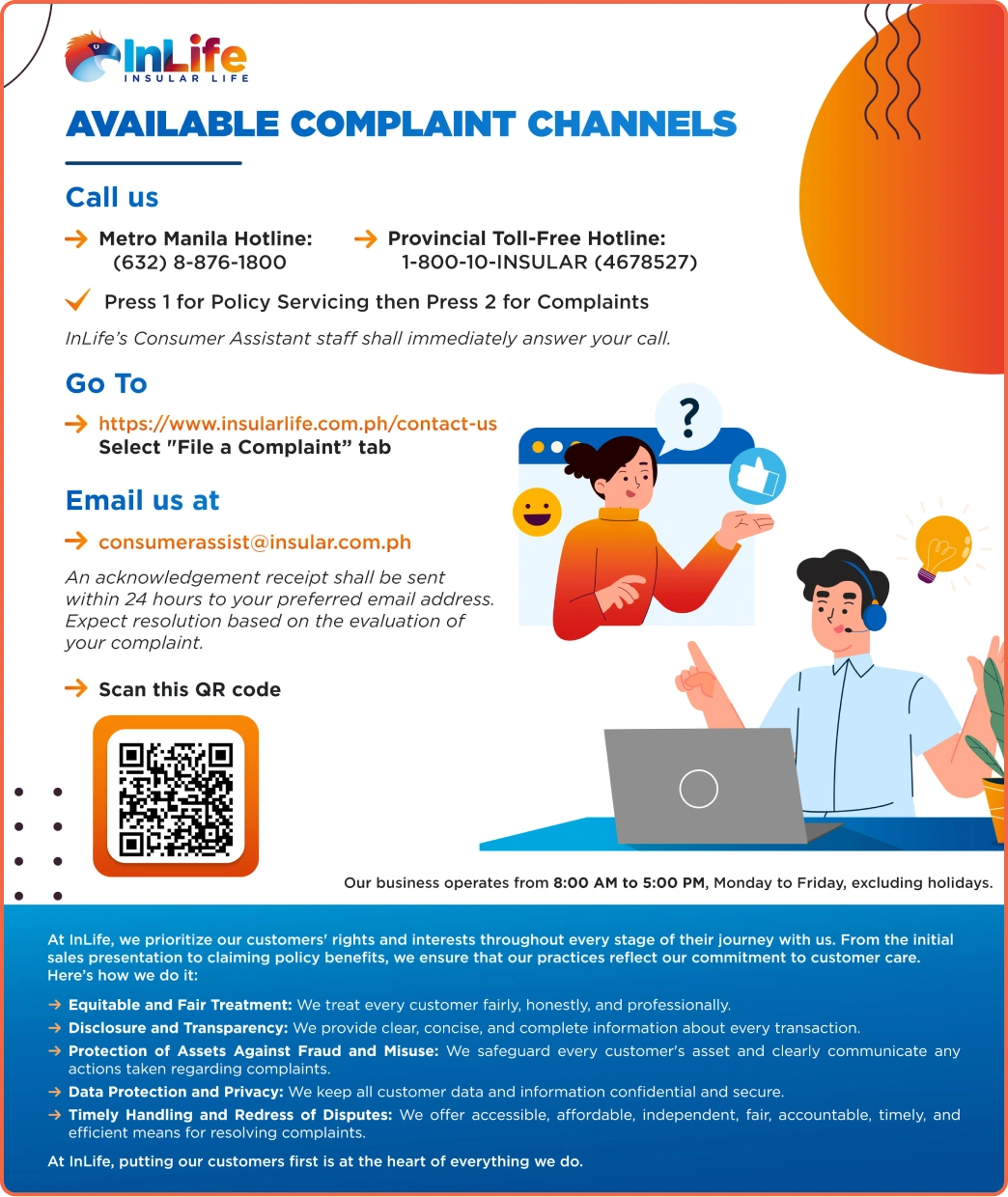Medical, nutrition, and Financial Experts Discuss the Health and Financial implications of Diabetes
Medical, nutrition, and Financial Experts Discuss the Health and Financial implications of Diabetes

The number of people with diabetes is increasing, and it remains as one of the leading causes of death in the world. In line with the celebration of Diabetes Awareness Week in July, Insular Life (InLife) hosted the webinar, “Livin’ the Sweet Life,” to discuss its health and financial implications.
Medical Center Manila Endocrinologist and UP College of Medicine Associate Professor Mia Fojas, MD, FPCP, FPCEDM; Registered Nutritionist-Dietitian Jo Sebastian; and Million Dollar Round Table Member and InLife Financial Advisor Ethel Tunguia discussed how one acquires the disease, what happens when one has developed diabetes, how nutrition plays a vital part in its management and what one can do to manage the cost of its treatment.
Understanding the disease
In her session about the pathophysiology and management of Type 2 diabetes, Dr. Fojas recommended people over 40 years and older to consider screening, especially if they are overweight, live a sedentary lifestyle, and has a first-degree relative who has diabetes. Other risk factors include impaired fasting glycemia (IFG) or impaired glucose tolerance (IGT); polycystic ovary syndrome (PCOS); hypertension; diagnosis or history of vascular disease; and schizophrenia, among others.
“Those with diabetes have twice the risk for stroke and five times at risk of having gangrene. ‘Pag ang diabetes ay na-manage, there is a 45 to 85 percent risk reduction for amputation, 50 to 60 percent lesser risk for vision loss, and reduced risk for loss of proper kidney function,” she explained.
She also pointed out that once a person is diagnosed with Type 2 diabetes, they will have it throughout their life.
“However, right now we have what we call diabetes in remission wherein a person diagnosed with Type 2 diabetes can be off their medications for one year. It’s not reversible, but you can be in remission,” Dr. Fojas said.
Diabetes has both microvascular and macrovascular complications. Microvascular complications, on the one hand, affect the eyes, kidneys, and nerves. Macrovascular complications, on the other hand, include stroke, heart attack, and peripheral arterial diseases.
Apart from medications, Dr. Fojas recommended lifestyle modification in treating diabetes.
“Proper nutrition and exercise are very important,” she stressed.
The role of nutrition in diabetes management
Sebastian echoed Dr. Fojas’ statement that nutrition is essential in managing diabetes.
“Nutrition on its own, while it can help us manage diabetes, is not the only thing we should focus on. We should also look at the other aspects of our health -- your sleep, your stress, your movement, and monitoring and medication if needed. But nutrition plays a very vital role. You eat every day, and what we eat often impacts our blood sugar levels,” she explained.
Sebastian defined nutrition as the science and art of nourishing the body properly. When it comes to nutrition for people with diabetes, she said the type of carbohydrates, timing and amount of carbohydrates, food paired with carbohydrates, and the type of fats one eats should be kept in mind.
“A balance of food at the right time and right amount is essential,” she said.
Secure your future while you're still healthy
Even before one is diagnosed with diabetes and other critical illness, Tunguia recommended ensuring their future is financially secure. She said that the HMO privileges one gets from work are not enough to cover medical and incidental costs one might incur.
“You are only covered by your HMO while you’re employed. So it’s better to get your own insurance plan,” she said.
InLife offers riders that may be attached to a life insurance plan. These riders offer additional benefits such as coverage for critical illnesses like the complications of type 2 diabetes, which are stroke, heart attack, kidney failure, loss of limbs and profound vision loss.
Tunguia, however, clarified that the insurance application would only be approved if one does not have Type 2 diabetes yet.
“That is the sad reality. So, while you are still (young and) healthy, start saving and get a life insurance plan," she said.
Diabetes has impacts on one’s physical and financial health. As the panel of experts in the webinar suggested, one must practice good physical habits to curb its development or manage it if one has it.
It is also highly advisable to prepare for your financial future. Having an insurance plan gives you something to lean on during trying times.
Learn more about InLife’s health insurance plan through https://www.insularlife.com.ph/health-insurance. Feel free to contact any InLife financial advisor to guide you.
To stay updated on InLife’s webinars, follow and subscribe to InLife's Facebook page.







